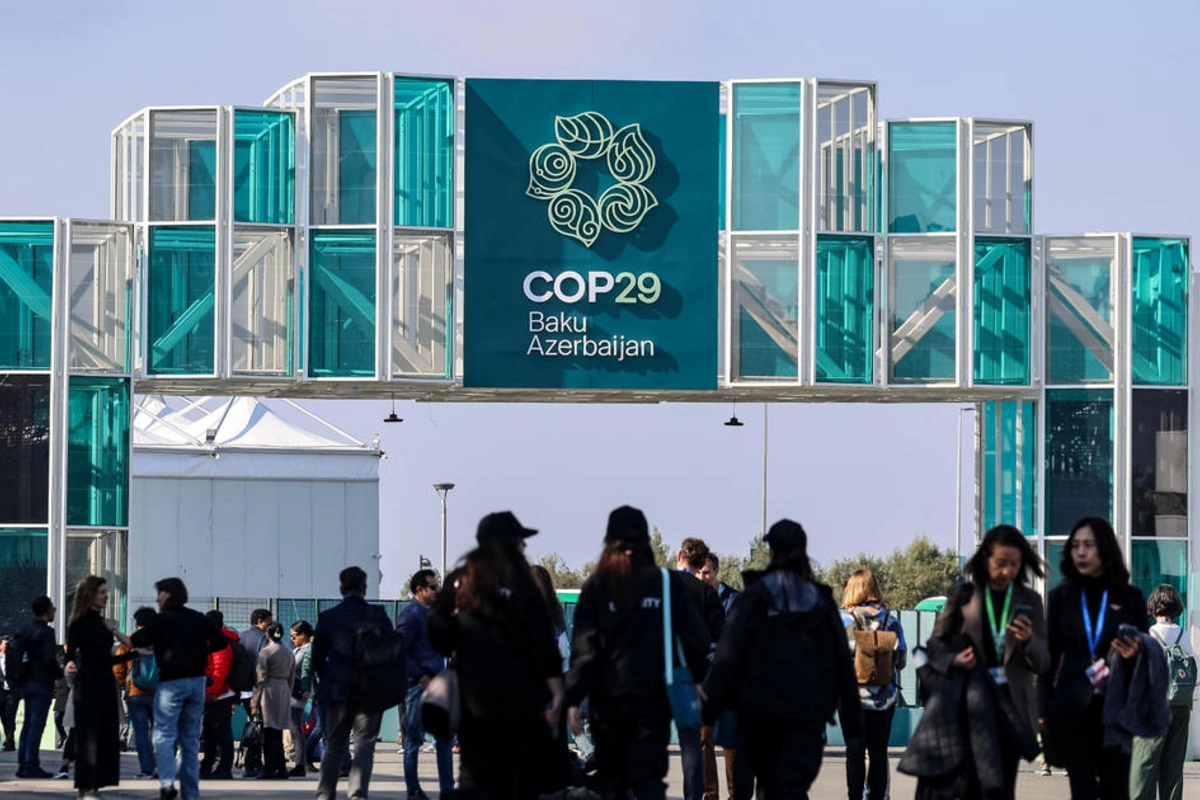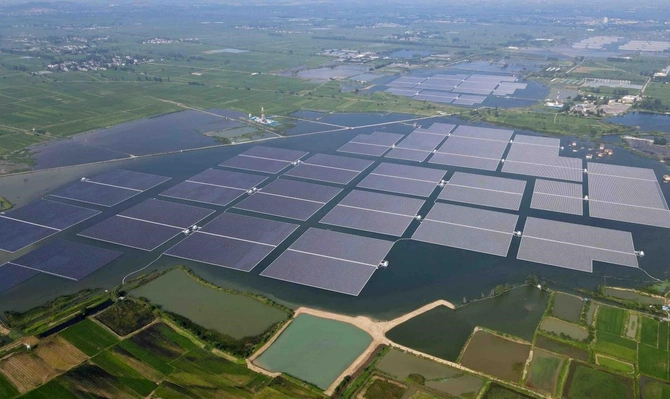
Preliminary documents and discussions at COP29 indicate that the resolution will likely urge all countries to expand further their nationally determined contributions (NDCs) to reduce carbon emissions.
Photo: Linkedin
CGTN, an English-language news TV channel based in Beijing, has published an article entitled “Climate finance takes center stage at COP29.” The Caspian Post reprints the article.
The 29th Conference of the Parties to the United Nations Framework Convention on Climate Change (UNFCCC), better known as COP29, kicked off in Baku, Azerbaijan on November 11.
The event's main objective is to develop and implement ambitious yet realistic recommendations that participating countries will approve as national policies. These policies aim to limit global warming to 1.5 degrees Celsius by the end of the century. Nearly 30 years after the first Conference of the Parties (COP) in Berlin, the goal remains to enhance international efforts to restrict global warming to pre-industrial levels and prevent catastrophic damage to the planet. At this year's conference, countries are focusing on discovering new funding sources.
Given the current delays in achieving carbon emission reduction targets set by the Paris Agreement, urgent actions are needed to generate worldwide attention and additional investment to combat climate change. Preliminary documents and discussions at COP29 indicate that the resolution will likely urge all countries to expand further their nationally determined contributions (NDCs) to reduce carbon emissions. Countries will be required to submit updated documents by 2025, emphasizing a gradual yet decisive phase-out of fossil fuels and an increase in the use of renewable energy.
The host country Azerbaijan expects all participants to develop and approve their national adaptation plans (NAPs) by next year, highlighting the importance of increasing funding for these plans. Additionally, COP29 urges global financial institutions and the private sector to enhance climate finance and encourage investment in green innovation. The conference is also emphasizing plans to strengthen the recently established Loss and Damage Fund to support vulnerable communities, particularly in small island developing states and the least developed countries.
COP29 is expected to approve 14 initiatives, one of the most significant being the proposal to establish a Climate Finance Action Fund (CFAF) based in Baku. As the host country and a fossil fuel producer, Azerbaijan has indicated its willingness to make the initial contribution to establishing that fund. This facility aims to receive an initial contribution of $1 billion from fossil fuel-producing countries and companies. The fund's primary goal is to invest in renewable energy and support climate projects in developing nations. It is planned that any profits received by the fund will be reinvested in further projects.
Based on previous estimates and current trends, global carbon dioxide emissions are expected to peak soon. However, progress in reducing these emissions is still behind schedule. Without significant reductions in emissions, the planet's average global temperature could increase by 2.4 degrees Celsius by the end of the century, leading to catastrophic consequences for humanity. However, achieving essential energy targets, such as tripling global renewable energy capacity and doubling the rate of energy efficiency by 2030, could significantly help to reduce the emissions gap.
Under the Paris Agreement, governments need to set a new climate finance target by 2025. The target, also known as the New Collective Quantified Goal (NCQG), is anticipated to be approved in Baku. According to the 2022 report from the Independent High-Level Expert Group on Climate Finance, most developing countries will need approximately $1 trillion per year by 2025 and $2.4 trillion annually by 2030 to meet their climate finance objectives.

Despite significant negative trends in financing the green transition, investment in renewable energy continues to rise. Total global energy investment is expected to exceed $3 trillion this year for the first time, with approximately $2 trillion allocated to clean technologies, including renewables, electric vehicles, nuclear energy, grids, storage, low-emission fuels, energy efficiency, and heat pumps. The remaining funds will be directed toward coal, gas, and oil.
Last year, humanity reached a historic milestone when total investments in renewables and grid infrastructure surpassed spending on fossil fuels for the first time. However, emerging economies, excluding China, are still significantly underfunded in their transition to clean energy generation. Such investment is far less than required to meet the growing energy demand in these countries, where high capital costs hinder the development of new projects.
It is important to note that when the Paris Agreement was reached in 2015, total investment in renewable energy for electricity generation was double that of fossil fuel power plants. This year, that figure is projected to increase tenfold, with solar power investments exceeding all other electricity generation technologies combined. Solar power investment is expected to reach $500 billion this year, driven by rapidly falling solar panel prices that encourage new investments.
China is set to invest at least $675 billion in clean energy this year, fueled by strong demand for solar power, lithium batteries, and electric vehicles. Europe and the U.S. follow, with clean energy investments of $370 billion and $315 billion, respectively. Together, these three economies account for over two-thirds of global clean energy investment, highlighting significant disparities in international capital flows into the new energy and the necessity to strengthen international cooperation to achieve more balanced renewable energy development.
Share on social media